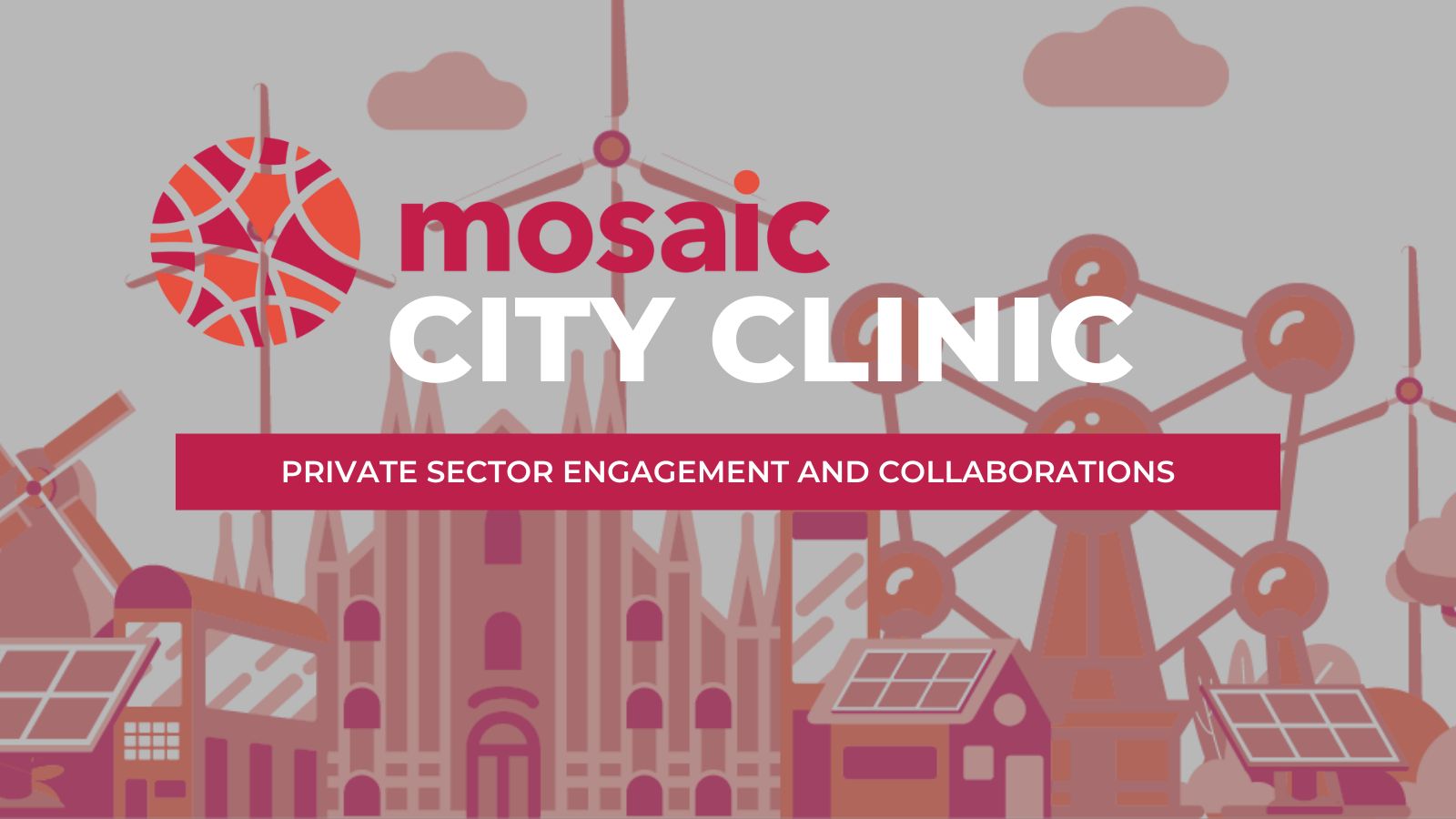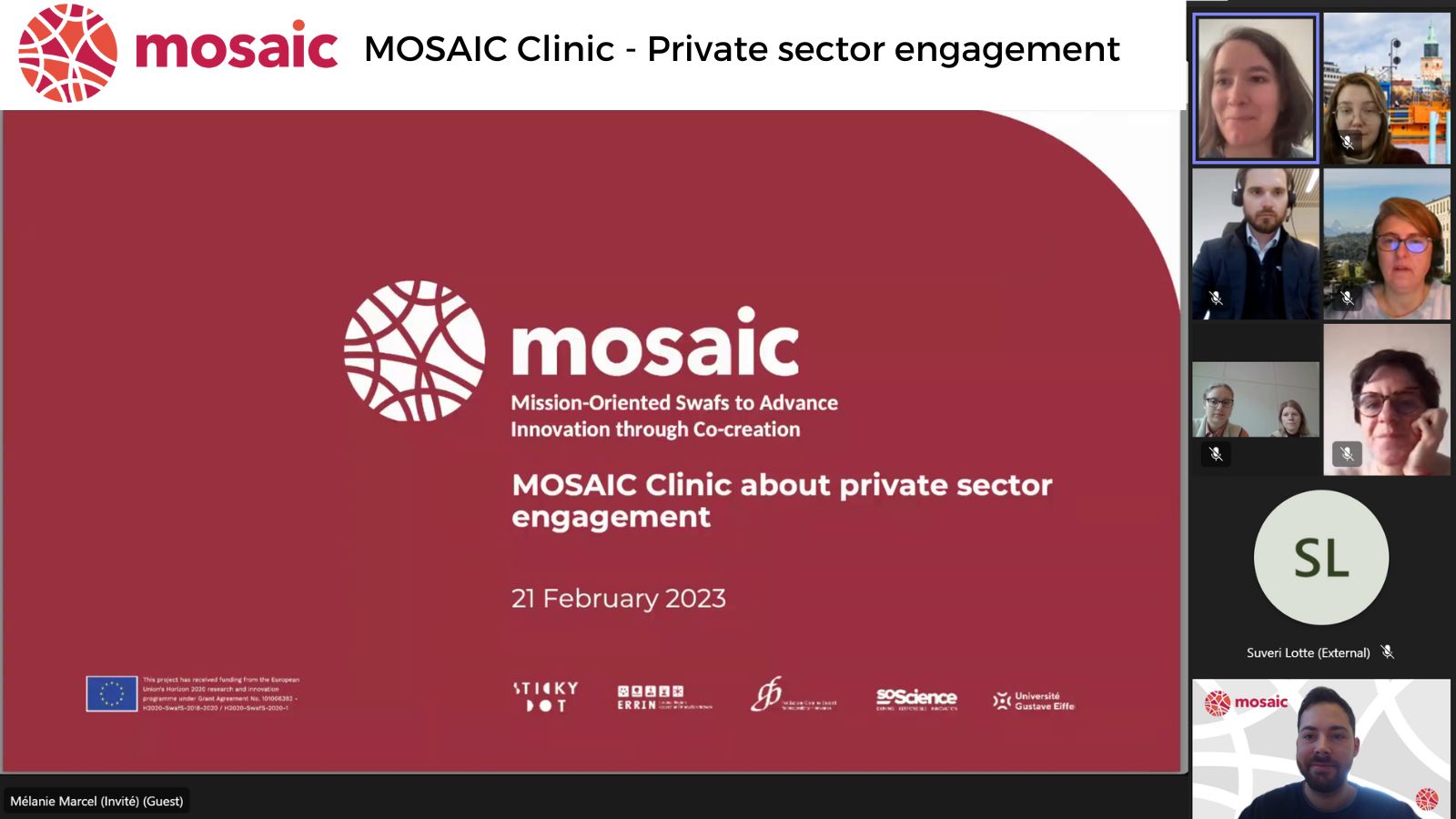The recent MOSAIC Clinic delved into the crucial topic of engaging companies in co-creation activities. Recognising the significance of involving all stakeholders in the climate transition journey, MOSAIC provided a space for its Community of Practice cities to share their experiences and exchange insights on breaking barriers and fostering dialogue with the private sector.
During the MOSAIC Clinic, participants identified some common barriers, such as:
Lack of awareness and understanding: Many companies may not be fully aware of the urgency and importance of climate action or may not have a comprehensive understanding of the potential benefits of collaboration. To address this, cities emphasised the need for targeted awareness campaigns and educational initiatives that highlight the business case for climate action and the opportunities for innovation and sustainability.


Competing priorities and limited resources: Companies may face competing priorities, limited resources, and short-term profit-oriented mindsets that make it challenging to prioritise climate co-creation activities. By demonstrating the long-term benefits, cost savings, and potential competitive advantages, cities can help companies see the value of investing in sustainable practices and collaborative initiatives.
To overcome these challenges, participants discussed inspiring examples and best practices:
Building relationships and trust: Developing strong relationships based on trust and mutual respect is essential for effective collaboration. Cities can initiate dialogues with companies, emphasising shared goals and common interests in addressing climate challenges. Open and transparent communication, regular meetings and networking events can help establish trust and build long-lasting partnerships.
Highlighting shared value and benefits: Demonstrating the shared value and tangible benefits of collaboration is crucial to engage companies. Cities can showcase successful case studies, highlighting how partnerships with the private sector have led to innovation, cost savings, improved reputation, and enhanced resilience. By emphasising the positive impact of joint efforts, cities can encourage companies to actively participate in co-creation activities.
Co-designing initiatives and projects: Involving companies in the co-design of climate initiatives ensure their active participation and ownership. By understanding the specific needs and challenges of the private sector, cities can tailor co-creation activities to align with business objectives while addressing climate goals. Collaborative projects, pilot programs, and innovation challenges provide opportunities for companies to contribute their expertise and resources towards climate action.
Involving all actors in the climate transition journey is not always an easy challenge, but the good practices and exchanges shared by these motivated and committed people show that these cities are on the right track. By addressing barriers such as lack of awareness, competing priorities, and regulatory challenges, cities can create conducive environments for collaboration.
